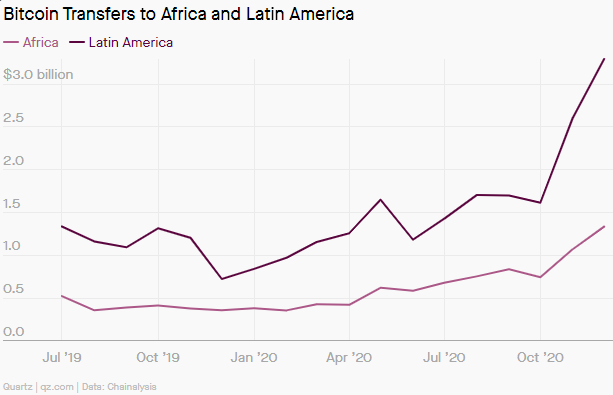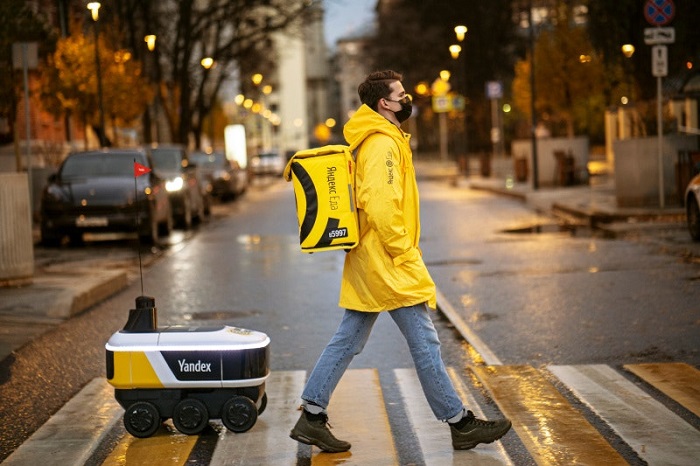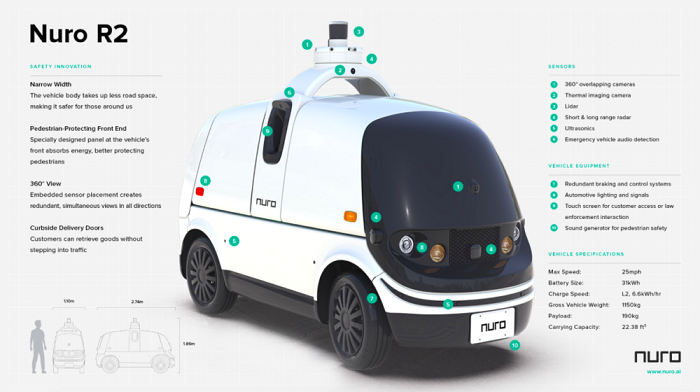Thomas Rice is the Portfolio Manager for the Perpetual Global Innovation Share Fund, based in Sydney, Australia.
Here's his latest innovation wrap of health, technology, innovation, and finance news.
Chips and Computing
The Wall Street Journal looks at the materials that could replace silicon in future tech.
Researchers on the bleeding edge of physics, chemistry and engineering are experimenting with exotic-sounding substances to be used in microchips. They include graphene, black phosphorus, transition metal dichalcogenides, and boron nitride nanosheets. Collectively, they’re known as 2-D materials, since they are flat sheets only an atom or two thick. Largely unknown just 20 years ago, they are now regularly fabricated in labs, using methods as mundane as a blender and as tricky as high-temperature vapor deposition.
Intel’s new CEO, Pat Gelsinger, delivered an excellent keynote outlining Intel’s strategy going forward — it’s 59 minutes long but worth the watch if you’re interested in semiconductors or computing. Stratechery’s breakdown is also worth a read.
Blockchain and Crypto
The New York Times article Buy This Column on the Blockchain! was indeed bought on the blockchain for $560,000.
The NFT, a unique bit of digital code that is stored on the Ethereum blockchain and refers to a 14 megabyte graphic of the column hosted on a decentralized file hosting service, cannot be duplicated or counterfeited, making it potentially valuable for collectors. Some NFTs have sold for hundreds of thousands of dollars in recent weeks, with one such sale — a collection of art by the digital artist Beeple — bringing in more than $69 million at auction.
Chainalysis, a start-up that sells blockchain data analytics tools, has doubled its valuation to $2 billion in a new investment round.
Founded in 2014, Chainalysis helps governments and private sector companies detect and prevent the use of bitcoin and other cryptocurrencies in illicit activities like money laundering with its investigations and compliance software.
Bitcoin is being increasingly used for money remittance by the millions of workers who send their earnings abroad.
Nowhere is this clearer than in Nigeria, where the central bank is so worried about Nigerians choosing cryptocurrencies over the naira for overseas remittance payments that it is now paying them to use official channels for those transfers instead.

Renewables
A report released by the National Academies of Sciences, Engineering and Medicine recommends more investment into solar geoengineering research, where sunlight is reflected back to space to artificially cool the planet.
So far, it's a purely hypothetical idea — but scientists have proposed a number of ways it could be done.
The most common proposal suggests spraying reflective aerosols into the atmosphere, where they would beam sunlight away from the Earth. Other proposals involve making clouds brighter by injecting them with particles, or to help trap less heat beneath them.
They're contentious ideas. Experts have many concerns about the possibility of unintended consequences, such as unwanted effects on rainfall or other global weather patterns.
California scientists are looking into covering canals with solar panels.
Their feasibility study, published in the journal Nature Sustainability, finds that if applied statewide, the panels would save 63 billion gallons of water from evaporating each year. At the same time, solar panels across California’s exposed canals would provide 13 gigawatts of renewable power annually, about half of the new capacity the state needs to meet its decarbonization goals by the year 2030.
Bloomberg looked at community solar (9-minute video).
Cybersecurity
Google’s top security team has thwarted a nine-month hacking operation, however, it’s a counterterrorism hacking operation undertaken by a US ally, highlighting the complexity of balancing user security with national security concerns.
Instead of focusing on who was behind and targeted by a specific operation, Google decided to take broader action for everyone. The justification was that even if a Western government was the one exploiting those vulnerabilities today, it will eventually be used by others, and so the right choice is always to fix the flaw today.
Facebook says it blocked hackers in China who were trying to spy on Uyghur Muslims abroad.
Facebook said it found websites designed to look like third-party Android app stores “where they published Uyghur-themed applications, including a keyboard app, prayer app, and dictionary app.” Any apps downloaded from these sites contained malicious software to infect devices.
A Florida student and her mother were arrested after hacking school records to steal the homecoming queen election.
Robotics
A New York lawmaker has proposed a law that will ban police use of armed robots in the future.
New York City councilmember Ben Kallos says he “watched in horror” last month when city police responded to a hostage situation in the Bronx using Boston Dynamics’ Digidog, a remotely operated robotic dog equipped with surveillance cameras. Pictures of the Digidog went viral on Twitter, in part due to their uncanny resemblance with world-ending machines in the Netflix sci-fi series Black Mirror.

Researchers in Japan have trained a robot to tie knots using only two fingers on each hand, which in theory will allow them to perform tasks with wires and cables (see the paper).
Microscopic drug-carrying robots broke the blood-brain barrier to reach brain tumours in mice (see the study).
Tiny microbots are nothing new. The same goes for disguising a robot as a bacteria or using magnets to move them through the bloodstream. But what makes this microbot design stand apart from the crowd is that it can cross one of the body’s toughest biological barriers: the blood-brain barrier (BBB.)
Mobility
VentureBeat looks at how Yandex plans to expand its autonomous robot delivery service.
Yandex’s delivery fleet currently comprises about 35 robots, most of which are making deliveries from Yandex.Eats and Yandex.Lavka in four Moscow districts and the town of Innopolis. A few additional robots are being used for testing purposes and to map new delivery locations, Polishchuk says.

Nuro has added investors to its $500m Series C funding round it announced in November 0220, with Woven Capital and Chipotle Mexican Grill joining the round.

Australian Lidar company Baraja has raised a $31 million B round to continue the deployment and development of their unique imaging system. Investors in the round include previous backers Blackbird Ventures and Main Sequence Ventures, along with new investors HESTA, Regal Funds Management, Perennial Value Management, and InterValley Ventures.
Alternative foods
A study by Boston Consulting Group and Blue Horizon Corporation called Food for Thought suggests that meat consumption will be in decline by 2025 in Europe as protein alternatives reach parity on price and quality.
Bloomberg explored the world of cultured meat (10-minute video).
Finance
ViacomCBS, Discovery, and several Chinese internet ADRs tanked on Friday due to the forced liquidation of positions held by Archegos Capital. Ouch.
ViacomCBS and Discovery closed down more than 27% on Friday, with Viacom off more than 50% for the week while Discovery slid 45%. The companies have been heavily shorted amid investor skepticism about their long-term prospects in a crowded media landscape.
For the week, Baidu was down more than 18%, Tencent more than 33% and Vipshop more than 31%
Robotic automation firm UiPath has filed to go public (see the S-1).
Venture capitalists are backing European ecommerce startups hoping to take on Amazon, with Turkish startup Getir, German startup Gorillas, and Finnish startup Wolt all announcing funding rounds into the hundreds of millions this year.
While Amazon is huge in the U.S. and many other countries, it isn’t as well established in some corners of Europe and large swathes of Asia. In fact, the tech giant only has dedicated online stores for around 17 countries worldwide.
Other snippets
Microsoft is in discussions to acquire popular communications app Discord.
Discord offers Microsoft a big and engaged community. Primarily used by gamers, it has become a Gen Z hub for socializing with friends, particularly during the pandemic. It consists predominantly of private communities, and Discord has 6.7 million active servers every single day. It’s a huge community, 75 percent of which are Discord users outside of North America.
CNBC discussed why China is beating the US in electric vehicles (17-minute video).
Thomas Rice is the Portfolio Manager for the Perpetual Global Innovation Share Fund, based in Sydney, Australia.
Perpetual Investments is a sponsor of Firstlinks. This article contains general information only and is not intended to provide you with financial advice or consider your objectives, financial situation or needs.
For more articles and papers from Perpetual, please click here.